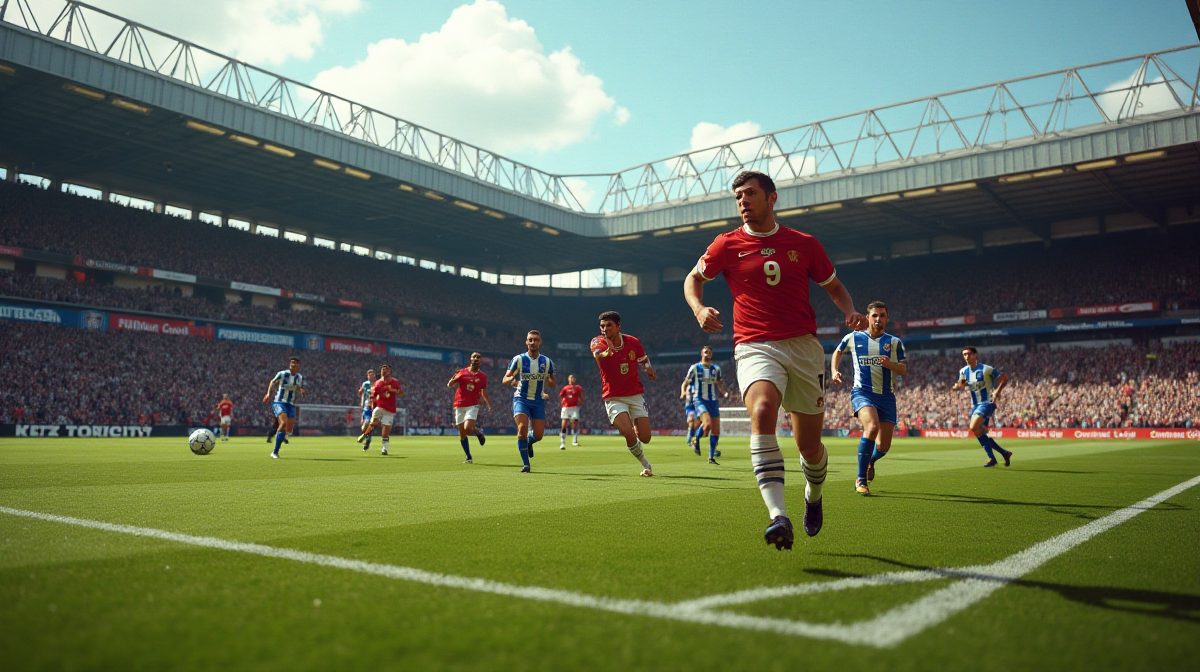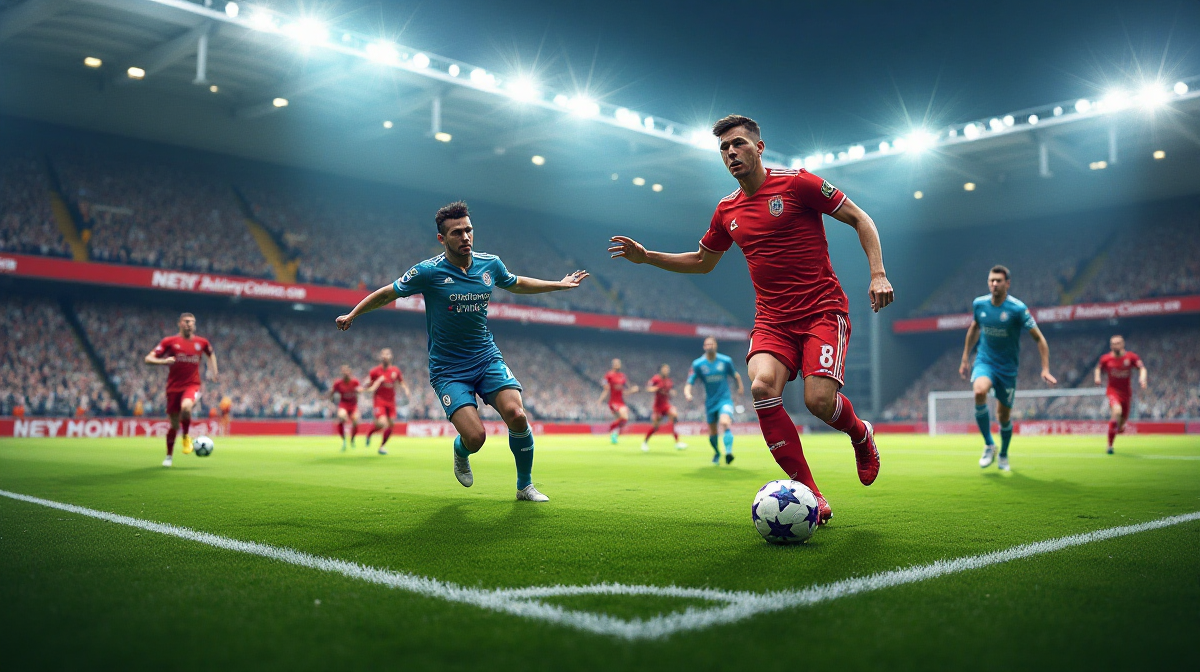When Did the Premier League Begin? A History
Introduction: The Genesis of a New Era
Football Before 1992: The Football League's Dominance
For nearly a century, English football was defined by the Football League. Established in 1888, it represented the pinnacle of the sport in England, fostering a strong sense of local identity and tradition. However, by the late 1980s, cracks began to appear in this established order. While the Football League had a rich history, it was increasingly seen as outdated and unable to capitalise on the growing commercial opportunities within the sport. Many fans also found accessing information about scores, like livescore premier league today results, difficult, relying heavily on newspaper reports.
Growing Discontent & The Need for Change
Several factors contributed to the growing discontent. Stadiums were aging and often unsafe, hooliganism was a persistent problem, and English clubs were falling behind their European counterparts in terms of revenue and on-field success. The clubs, particularly the bigger ones, felt they weren't receiving a fair share of the broadcasting revenue and were stifled by the League’s regulations. This frustration led to discussions about a potential breakaway. Accessing a betnaija shop login to place bets on matches was becoming more common, indicating growing public engagement with the sport.
The Vision for a New League: Money, Globalisation & Modernisation
The vision for a new league centered around maximizing commercial potential, attracting global investment, and modernizing the entire footballing experience. The idea wasn’t just about creating a more lucrative league; it was about transforming English football into a world-leading brand. This included better broadcasting deals, improved stadium facilities, and the ability to attract the best players from around the globe. The rise of the betnaija login app showed a changing landscape in how fans interacted with the game.
The Road to Formation – 1989-1992
The Taylor Report & Stadium Safety: A Catalyst for Change
The Hillsborough disaster in 1989 was a watershed moment. The subsequent Taylor Report highlighted serious safety deficiencies in English football stadiums and mandated significant improvements, including the conversion to all-seater stadiums. This presented a huge financial burden for many clubs, further fueling the desire for a new league that could generate more revenue.
The Top Clubs Break Away: Initial Negotiations & Resistance
In 1989, the top clubs began secret negotiations to form a new league. This initiative was led by clubs like Manchester United, Liverpool, Arsenal and Tottenham Hotspur. The Football League initially resisted fiercely, fearing the loss of its control and revenue.
The FA's Reluctant Acceptance & Final Agreement
After much negotiation and legal maneuvering, the Football Association (FA) eventually gave its reluctant acceptance to the formation of the Premier League. The FA recognised the potential benefits of a more commercially viable league and the need to address the issues facing English football. A deal was struck allowing the top clubs to break away but ensuring the continuation of the Football League pyramid structure.
Legal Battles & Ensuring a Successful Launch
The formation wasn't without legal challenges. The Football League attempted to block the breakaway, but the Premier League clubs were ultimately successful in establishing their independence. Careful planning went into ensuring a successful launch, including securing broadcasting deals and establishing a new organizational structure.

August 1992: The Premier League is Born
The Inaugural Season Kick-Off: Date, Teams & Key Players
The Premier League officially kicked off on August 15, 1992. The inaugural season featured 22 teams, including Manchester United, Arsenal, Liverpool, and Chelsea. Iconic players like Eric Cantona, Peter Schmeichel, and Alan Shearer would quickly become synonymous with the new league. Checking livescore premier league today results became a weekend ritual for a growing fanbase.
Early Broadcasting Deals: Sky Sports & the Media Revolution
A landmark broadcasting deal with Sky Sports was crucial to the Premier League’s success. This deal injected significant investment into the league, allowing clubs to improve their facilities and attract better players. It also revolutionized the way football was consumed, with increased coverage and analysis.
The First Season’s Champions: Sheffield Wednesday vs. Manchester United – The Title Race
The first Premier League title was won by Manchester United, edging out Leeds United in a closely contested race. The season was full of drama and excitement, setting the tone for the years to come. Individuals could even use a betnaija shop login to try and predict the outcome.
Immediate Impact: Increased Revenue & Player Investment
The Premier League’s launch had an immediate impact on English football. Revenue soared, allowing clubs to invest in better players, improved training facilities, and stadium upgrades. The league quickly established itself as one of the most competitive and entertaining in the world.

The Early Years of the Premier League
The Rise of Manchester United Under Sir Alex Ferguson
The 1990s were dominated by Manchester United under the legendary Sir Alex Ferguson. Ferguson built a dynasty, winning multiple Premier League titles and establishing the club as a global powerhouse.
Foreign Influences Begin: Initial Impact of Overseas Players
The Premier League began to attract a growing number of foreign players, adding a new dimension to the game. Players like Junichi Inamoto and Nwankwo Kanu brought flair and skill to the league, enhancing its appeal.
Developing a Brand: Marketing, Sponsorships & Global Appeal
The Premier League actively worked to develop its brand and expand its global reach. Marketing campaigns, sponsorship deals, and increased media coverage helped to attract fans from around the world.
Key Moments & Memorable Matches from the 90s
The 90s were filled with memorable moments, including dramatic title races, stunning goals, and fierce rivalries. Matches between Manchester United and Arsenal became iconic clashes, watched by millions worldwide.
The Premier League in the 21st Century
Increased Globalisation: Expanding Reach & International Viewership
The 21st century saw further globalisation of the Premier League. The league’s reach expanded to new markets, with dedicated fan bases emerging in Asia, Africa, and the Americas.
The Roman Abramovich Effect and a New Era of Investment
The 2003 acquisition of Chelsea by Roman Abramovich marked a turning point. Abramovich’s investment transformed Chelsea into a major force, challenging Manchester United’s dominance.
The Dominance of The Big Four
For a period, the Premier League was dominated by a “Big Four” of Manchester United, Arsenal, Liverpool, and Chelsea. This later evolved into a “Big Six” with the emergence of Manchester City and Tottenham Hotspur.
Financial Fair Play & Its Impact on Competitive Balance
The introduction of Financial Fair Play (FFP) regulations aimed to promote competitive balance by limiting club spending. However, its impact has been debated, with some arguing that it has favoured established clubs.
Tactical Evolution & The Influence of Foreign Managers
The Premier League has seen a significant evolution in tactics, influenced by a wave of foreign managers like Arsène Wenger, José Mourinho, and Pep Guardiola. These managers brought new ideas and approaches to the game.
Current Trends: Increasing Commercialization, VAR & Fan Engagement
Today, the Premier League is a highly commercialized league, with lucrative broadcasting deals and sponsorship agreements. The introduction of Video Assistant Referee (VAR) has sparked controversy, while clubs are increasingly focused on fan engagement through digital platforms.
The Premier League's Legacy & Future
The Premier League's Position as a Global Footballing Powerhouse
The Premier League is now widely regarded as the most competitive and lucrative football league in the world. It attracts the best players, managers, and fans, and generates billions of pounds in revenue. When looking for livescore premier league today results, millions turn to the Premier League.
Continuing Challenges: Maintaining Competitive Balance & Fan Affordability
Despite its success, the Premier League faces ongoing challenges. Maintaining competitive balance is a key concern, as is ensuring that tickets remain affordable for fans.
Potential Future Developments: Expansion, Technology & New Markets
The Premier League is constantly exploring new ways to grow and evolve. Potential future developments include expanding the league, embracing new technologies, and targeting new markets.
The Premier League's Enduring Impact on English Football & Beyond
The Premier League has had a profound and lasting impact on English football and beyond. It has transformed the game into a global spectacle and inspired a new generation of players and fans. Even casual fans may check a betnaija login app for friendly wagers, demonstrating the league's cultural impact.

